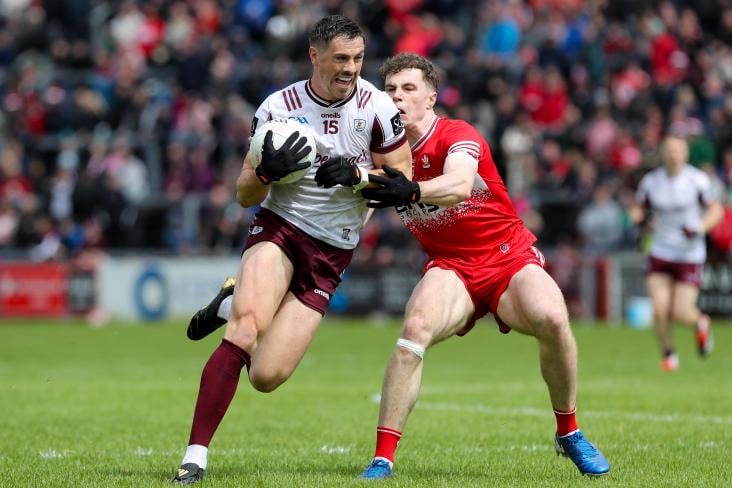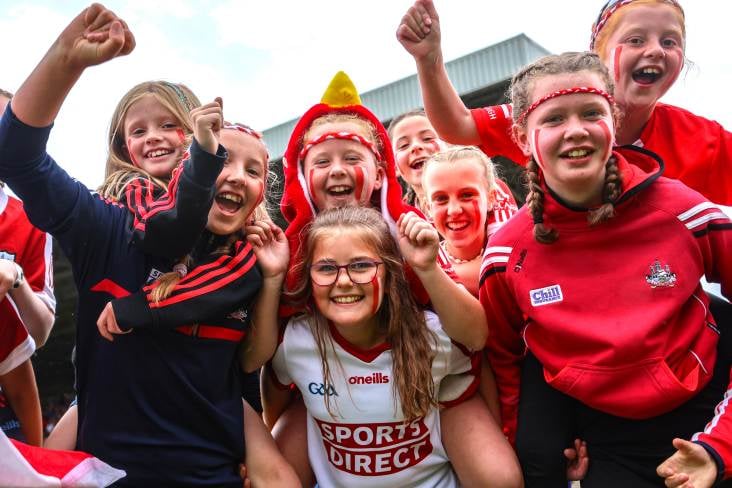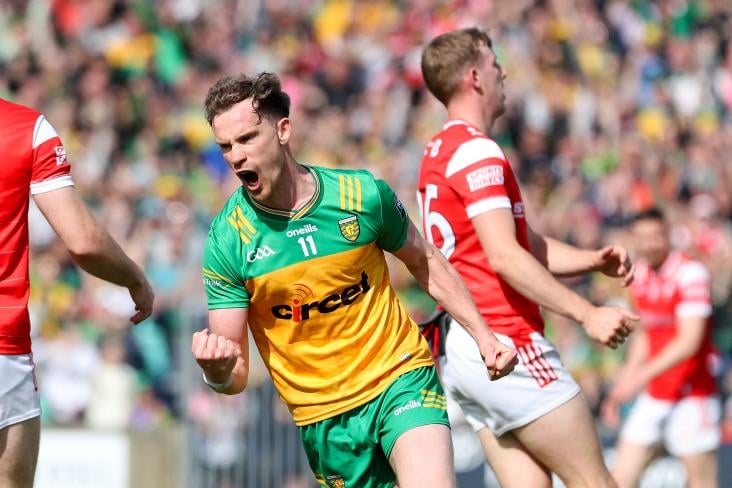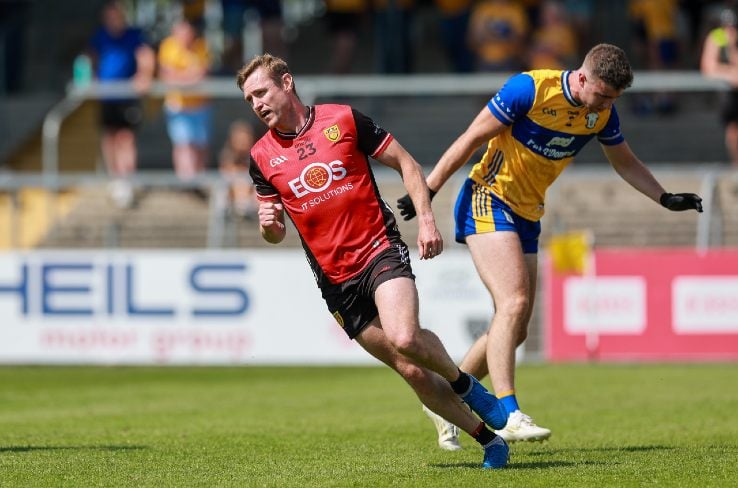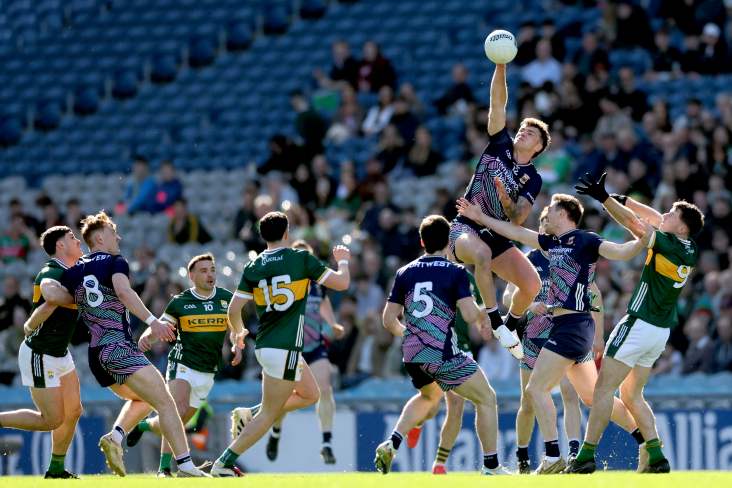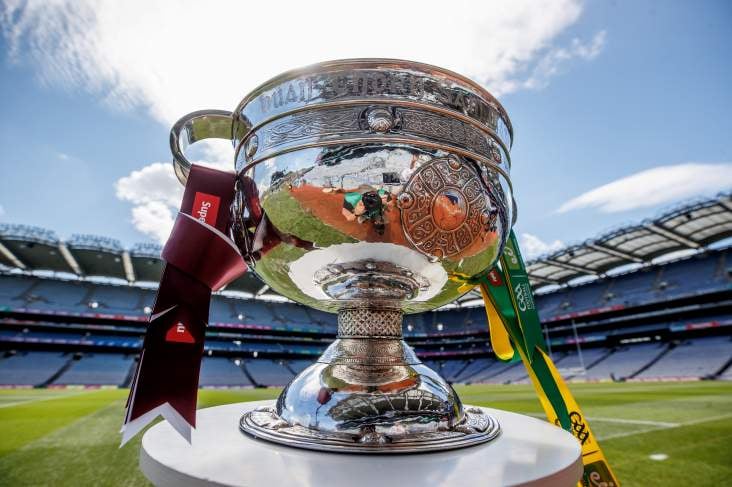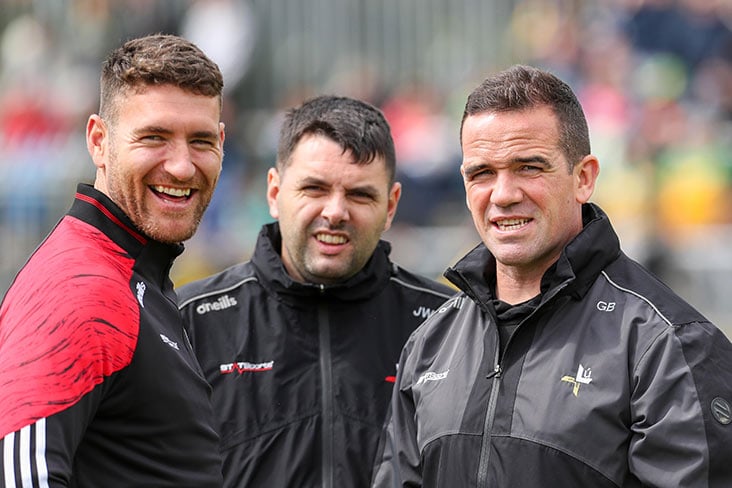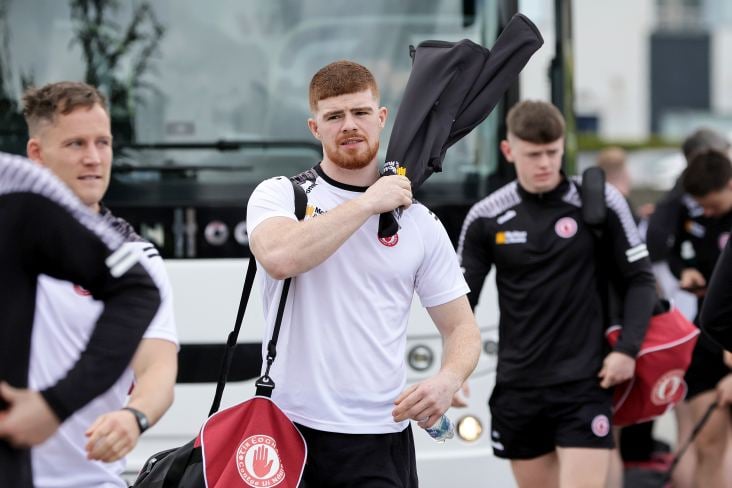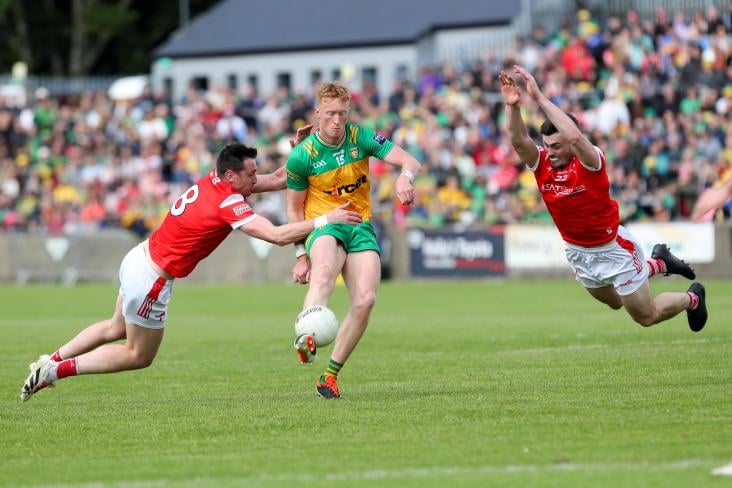The John Mitchel debate and his links to slavery
June 19, 2020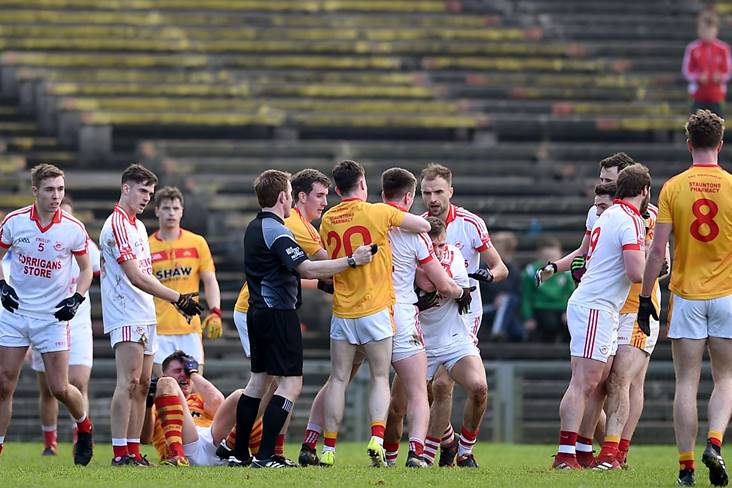
Tempers flare during the 2017 Mayo SFC final between Ballintubber and Castlebar Mitchels. ©INPHO/Tommy Grealy.
by John P Graham
Racism is very much in the news at the moment as following the death of George Floyd in Minneapolis a couple of weeks back.
There have been anti-racism protests and marches in many cities across the world. The Black Lives Matter crusade has also sparked renewed interest in historical slavery and those involved in it.
Statues in honour of some of those people have been removed, damaged or just simply torn down.
That debate has now even focussed attention on the GAA and in particular the name of John Mitchel and his support for slavery, even though he was not a slave trader or a slave owner.
Throughout the provinces you will find GAA clubs bearing the name Mitchels. There is John Mitchels in Tralee; Castlebar Mitchels the 31-time Mayo SFC winners and three-time All-Ireland senior club finalists; Magheracloone Mitchels in Monaghan who reached the All-Ireland club intermediate final earlier this year. After that there are at least seven more clubs with Mitchel emblazoned on their jersey.
They are named after John Mitchel, an avowed Irish Republican and a man who was revered in Ireland by the likes of Patrick Pearse and Arthur Griffith to name but two.
Born near Dungiven in County Derry in 1815 and raised in Newry, he was an Irish Republican of fame in the mid-19th century and became famous for his writings which primarily condemned Britain's part in the Great Famine. He was regarded as one of the inspirations for Irish Republicans from the 1840s onwards and his view of the famine as genocide, as something inflicted upon Ireland by the British, owes a lot to John Mitchel’s writings.
He was a Young Irelander and was exiled in 1848 to Van Diemen's Land. He escaped to America and was a huge celebrity; you can imagine this Irish revolutionary arriving in the US having escaped from Van Diemen's Land. He was very well-known in the 1840s and 1850s as an international personality.
He wrote a couple of short books, his 'Jail Journal' is a very famous one and the other was called 'The Last Conquest of Ireland’ which was about the famine and was a really searing indictment of British rule under Queen Victoria and of Ireland starving.
When Mitchel reached America he lived in the south and supported the Confederacy in the American Civil War. He saw the southern United States as agricultural and pastoral. He thought the plantations and the whole set up was a magnificent system.
There is another side to the man because he was also an ardent supporter of slavery and a racist who believed black people to be inferior.
In recent days, with Black Lives Matter protests being held around the world highlighting injustices suffered by black people, petitions were launched in Newry to have a statue of Mitchel removed and for John Mitchel Place in the town to be renamed. There are many in the town ashamed that a man with unambiguously racist views is so honoured.
Mitchel later returned to Ireland and his association with Magheracloone comes about as he is reported to have addressed a large gathering in south Monaghan during the agrarian protests. He died in Newry in 1875. Along with the statue and streets named after him, there is the local GAA club, Newry Mitchels.
Recently several of the clubs named after John Mitchel were contacted and asked if recent protests had spurred any conversation about their club's name but the enquirer did not receive any responses.
It is now becoming more evident in an Ireland more diverse and multi-cultural than ever - one in which young children from every culture will play for and against clubs bearing John Mitchel's name that there needs to be a discourse about him and his attachment to the association.
Already young people have come out publicly about the racist abuse they have suffered playing for GAA clubs in various counties and this too adds to the argument that there needs to be a meaningful discussion on this topic.
So will there be clubs who are named for John Mitchel changing their names or will they carry on as they are and in that way honour the decisions of their founding fathers.
This one has some way to run yet.
Tweet